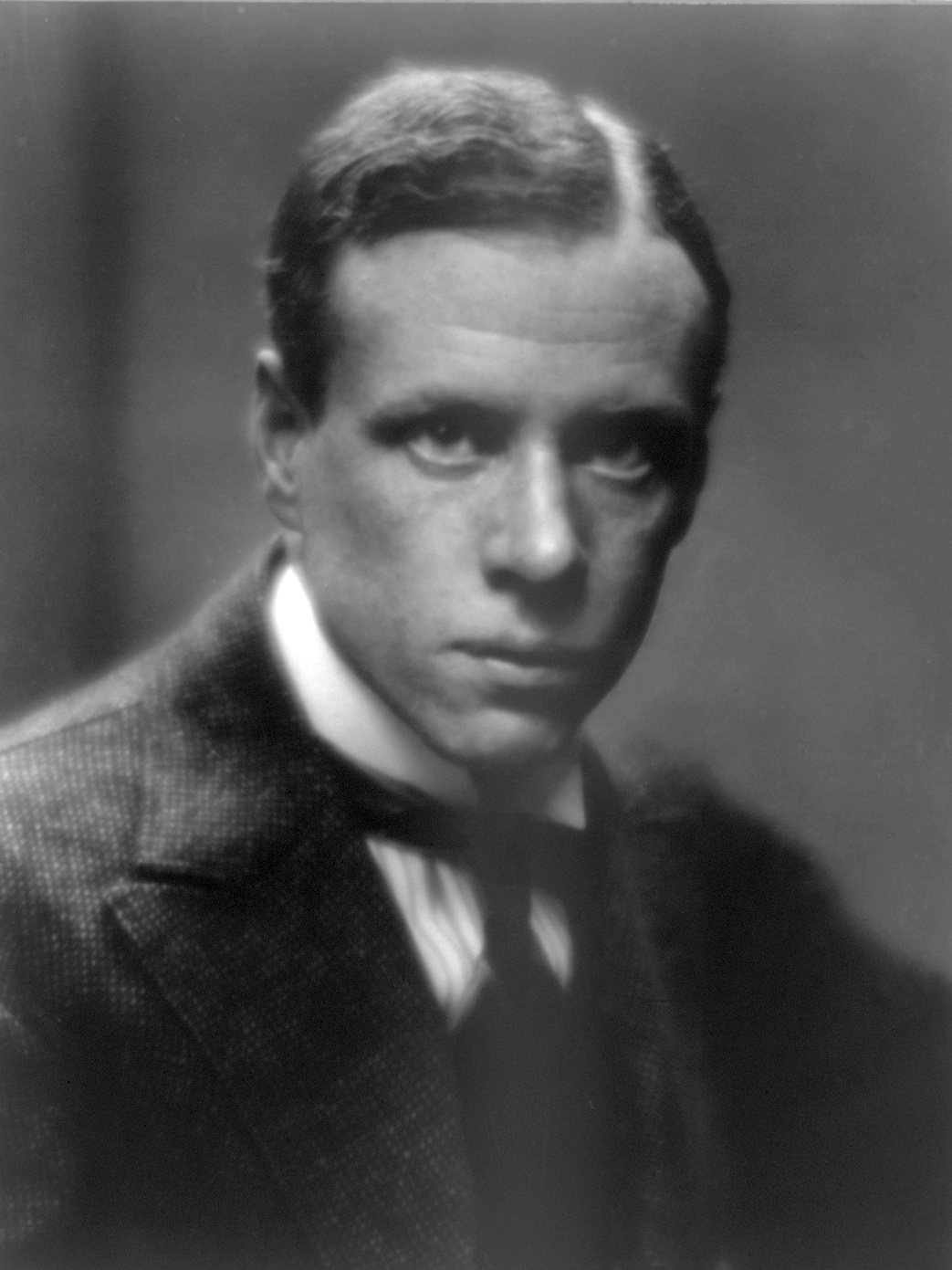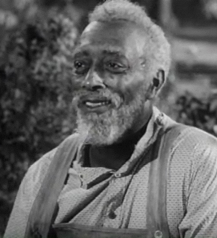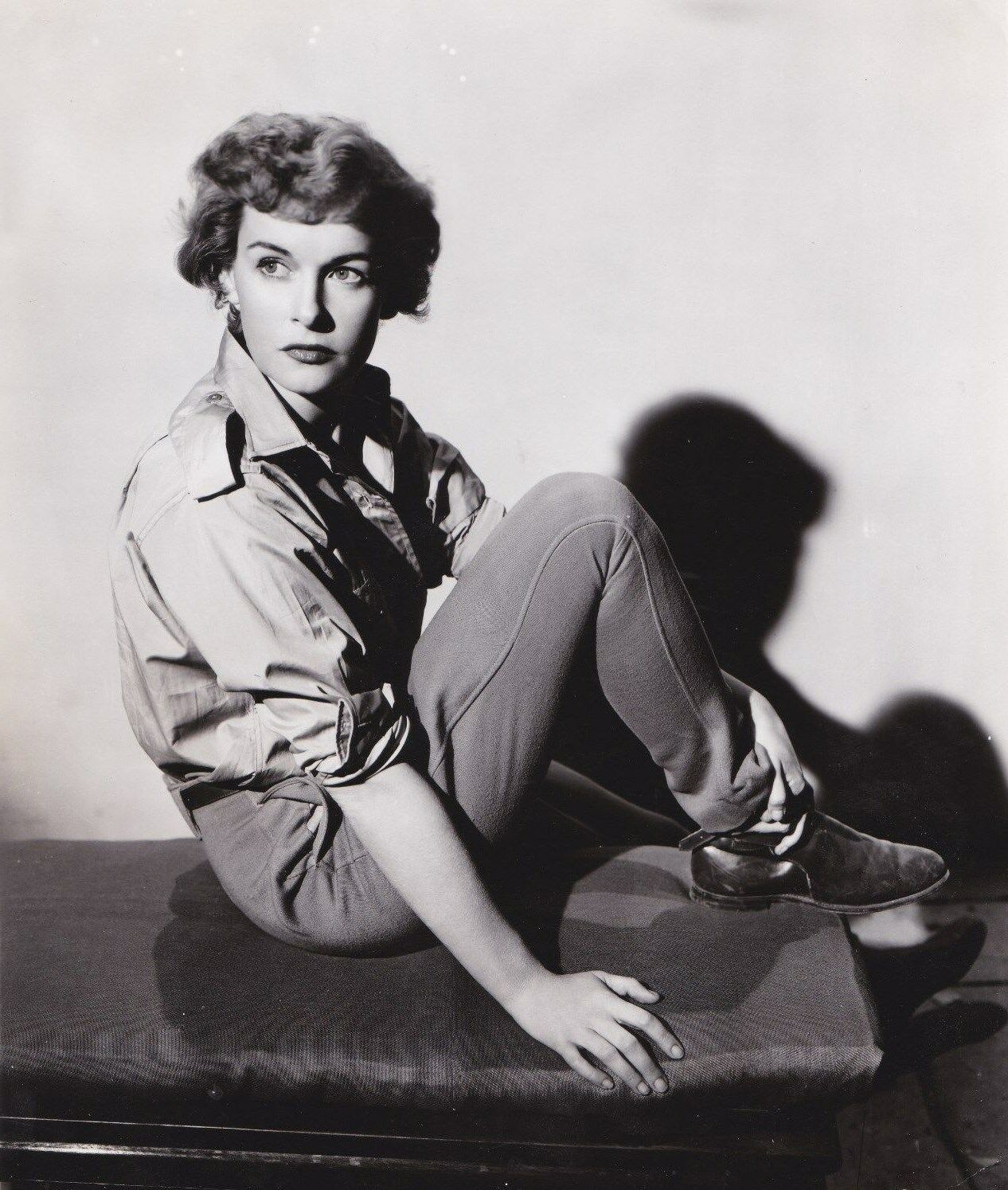|
Medallion Theatre
''Medallion Theatre'', aka ''Chrysler Medallion Theatre'', is a 30-minute American anthology series that aired on CBS from July 11, 1953, to April 3, 1954. Henry Fonda (in the premiere telecast "The Decision of Arrowsmith"), Claude Rains, and Janet Gaynor made their major television dramatic debuts on this series in various 1953 episodes. Others guest stars included Helen Hayes, Charlton Heston, Ronald Reagan, Jack Lemmon, Rod Steiger, and Roddy McDowell. Among its writers were Rod Serling and Robert Anderson. Directors included Ralph Nelson, Don Medford, Robert Stevens, and Seymour Robbie. The original producer was William Spier. Premise Spier said that older short stories were selected for their quality: "Thirty or forty years ago, writers knew content better, and by using their stories we hope to get what we're aiming at, dramas with fiber and dimension." Production All thirty episodes were aired live from New York. Mort Abrahams was associate producer, Samuel Leve ... [...More Info...] [...Related Items...] OR: [Wikipedia] [Google] [Baidu] |
Anthology Series
An anthology series is a radio, television, video game or film series that spans different genres and presents a different story and a different set of characters in each different episode, season, segment, or short. These usually have a different cast in each episode, but several series in the past, such as ''Four Star Playhouse'', employed a permanent troupe of character actors who would appear in a different drama each week. Some anthology series, such as '' Studio One'', began on radio and then expanded to television. Etymology The word comes from Ancient Greek ἀνθολογία (''anthología'', “flower-gathering”), from ἀνθολογέω (''anthologéō'', "I gather flowers"), from ἄνθος (''ánthos'', "flower") + λέγω (''légō'', "I gather, pick up, collect"), coined by Meleager of Gadara circa 60 BCE, originally as Στέφανος (στέφανος (''stéphanos'', "garland")) to describe a collection of poetry, later retitled anthology – see Gr ... [...More Info...] [...Related Items...] OR: [Wikipedia] [Google] [Baidu] |
Seymour Robbie
Seymour Robbie (August 25, 1919 – June 17, 2004) was a director of American television programs, whose work ranged from 1951 ('' Down You Go'') to 1990 ('' Father Dowling Mysteries''). His credits include game shows (e.g., ''The $64,000 Question''), crime dramas (e.g., ''Kojak''), action-adventure programs (e.g., ''Wonder Woman''), and sitcoms (e.g., ''F Troop''). He was born in New York City New York, often called New York City or NYC, is the most populous city in the United States. With a 2020 population of 8,804,190 distributed over , New York City is also the most densely populated major city in the Un .... Filmography Theatrical and television films * ''Art Carney Meets the Sorcerer's Apprentice'' (1959 TV movie) * ''Spirit of the Alamo'' (1960 TV documentary) * ''Beauty and the Beast'' (1969 TV movie) * '' C.C. and Company'' (1970 theatrical film) * '' Marco'' (1973 theatrical film) Television series Robbie directed one or more episodes of ea ... [...More Info...] [...Related Items...] OR: [Wikipedia] [Google] [Baidu] |
Ernest Truex
Ernest Truex (September 19, 1889 – June 26, 1973) was an American actor of stage, film, and television. Career Born in Kansas City, Missouri, Truex learned acting at an early age after his father, a doctor, treated actor Edwin Melvin, who paid his bill by giving the son elocution lessons. He started acting at age five and toured through Missouri at age nine as "The Child Wonder in Scenes from Shakespeare". His Broadway debut came in ''Wildfire'' (1908), and he performed in several David Belasco plays and portrayed the title role in the 1915 musical ''Very Good Eddie''. Truex played the lead role in the disastrous 1923 premiere of F. Scott Fitzgerald's ''The Vegetable''. In 1927, he created the role of Bill Paradene in '' Good Morning, Bill'', which was based on an original play by Ladislas Fodor and adapted by P.G. Wodehouse. In 1926, he performed for the first time in London's West End. He played a leading role in ''The Fall Guy'' at the Apollo Theatre. He continued to p ... [...More Info...] [...Related Items...] OR: [Wikipedia] [Google] [Baidu] |
Jack Lemon
John Uhler Lemmon III (February 8, 1925 – June 27, 2001) was an American actor. Considered equally proficient in both dramatic and comic roles, Lemmon was known for his anxious, middle-class everyman screen persona in dramedy pictures, leading ''The Guardian'' to coin him "the most successful tragi-comedian of his age." He starred in over sixty films and was nominated for an Academy Award eight times, winning twice, and received many other accolades, including six Golden Globe Awards (counting the honorary Cecil B. DeMille Award), two Cannes Film Festival Awards, two Volpi Cups, one Silver Bear, three BAFTA Awards, and two Emmy Awards. In 1988, he was awarded the American Film Institute's Lifetime Achievement Award for his contributions to the American cinema. His best known films include '' Mister Roberts'' (1955, for which he won the year's Oscar for Best Supporting Actor), ''Some Like It Hot'' (1959), ''The Apartment'' (1960), '' Days of Wine and Roses'' (1962), ''Irma l ... [...More Info...] [...Related Items...] OR: [Wikipedia] [Google] [Baidu] |
Sinclair Lewis
Harry Sinclair Lewis (February 7, 1885 – January 10, 1951) was an American writer and playwright. In 1930, he became the first writer from the United States (and the first from the Americas) to receive the Nobel Prize in Literature, which was awarded "for his vigorous and graphic art of description and his ability to create, with wit and humor, new types of characters." He is best known for his novels '' Main Street'' (1920), ''Babbitt'' (1922), '' Arrowsmith'' (1925), ''Elmer Gantry'' (1927), '' Dodsworth'' (1929), and ''It Can't Happen Here'' (1935). His works are known for their critical views of American capitalism and materialism in the interwar period. He is also respected for his strong characterizations of modern working women. H. L. Mencken wrote of him, " fthere was ever a novelist among us with an authentic call to the trade ... it is this red-haired tornado from the Minnesota wilds." Early life Born February 7, 1885, in the village of Sauk Centre, Minnesota, Le ... [...More Info...] [...Related Items...] OR: [Wikipedia] [Google] [Baidu] |
Arrowsmith (novel)
''Arrowsmith'' is a novel by American author Sinclair Lewis, first published in 1925. It won the 1926 Pulitzer Prize (which Lewis declined). Lewis was greatly assisted in its preparation by science writer Paul de Kruif, who received 25% of the royalties on sales, although Lewis was listed as the sole author. ''Arrowsmith'' is an early major novel dealing with the culture of science. It was written in the period after the reforms of medical education flowing from the Flexner Report on ''Medical Education in the United States and Canada: A Report to the Carnegie Foundation for the Advancement of Teaching'', 1910, which had called on medical schools in the United States to adhere to mainstream science in their teaching and research. The book was adapted by Hollywood as '' Arrowsmith'' in 1931, starring Ronald Colman and Helen Hayes. It was nominated for four Academy Awards, including Best Adapted Screenplay. Plot ''Arrowsmith'' tells the story of bright and scientifically minded ... [...More Info...] [...Related Items...] OR: [Wikipedia] [Google] [Baidu] |
Juano Hernández
Juano G. "Juano" Hernández (July 19, 1896 – July 17, 1970) was a Puerto Rican stage and film actor who was a pioneer in the African American film industry. He made his silent picture debut in ''The Life of General Villa'', and talking picture debut in an Oscar Micheaux film, '' The Girl from Chicago'', which was directed at black audiences. Hernández also performed in a series of dramatic roles in mainstream Hollywood movies. His participation in the film ''Intruder in the Dust'' (1949) earned him a Golden Globe Award nomination for "New Star of the Year." Later in life he returned to Puerto Rico, where he intended to make a film based on the life of Sixto Escobar. Early years Hernández was born in San Juan, Puerto Rico to Puerto Rican parents, Jose Guillermo and Clara de Ponce. With no formal education, he worked as a sailor and settled in Rio de Janeiro. He was hired by a circus and became an entertainer, making his first appearance as an acrobat in Rio de Janeiro i ... [...More Info...] [...Related Items...] OR: [Wikipedia] [Google] [Baidu] |
Diana Douglas
Diana Love Webster (née Dill; formerly Douglas and Darrid; January 22, 1923 – July 3, 2015) was an American actress who was known for her marriage to actor Kirk Douglas from 1943 until their divorce in 1951. She was the mother of Michael and Joel Douglas. In 1942, Douglas began her career as an actress and appeared in more than 50 films. Some of her well-known roles were as Susan Rogers in ''The Indian Fighter'' (co-starring Kirk Douglas) and as Peg in ''Planes, Trains and Automobiles''. She was also known for her recurring role as Martha Evans in ''Days of Our Lives'' (1977–1979, 1982). In 2003, she appeared in '' It Runs in the Family'' with her ex-husband Kirk, her son Michael and her grandson Cameron. She retired from acting in 2008. Early life She was born in Devonshire, Bermuda, on January 22, 1923. Her father, Lieutenant Colonel Thomas Melville Dill (also the name of her great-grandfather, a mariner), was a former Member of the Colonial Parliament (MCP) (repre ... [...More Info...] [...Related Items...] OR: [Wikipedia] [Google] [Baidu] |
That's My Boy (1954 TV Series)
''That's My Boy'' is a 1954– 1955 CBS situation comedy television series based on the 1951 Dean Martin and Jerry Lewis film of the same name. The series, written by Bob Schiller and Bob Weiskopf filmed before a live audience, starred Eddie Mayehoff as Jack Jackson, Sr., Gil Stratton as Jack, Jr., and Rochelle Hudson as Alice Jackson, the wife and mother. The senior Jackson is a construction contractor who had been a star football player in college, and he is determined to have "Junior" follow in his gridiron path at their common '' alma mater''. Broadcast The series aired at 9 p.m. Eastern in the slot following ''My Favorite Husband'' and preceding June Havoc's sitcom ''Willy'' on CBS. Both ''That's My Boy'' and ''Willy'' aired opposite ''The George Gobel Show'' on NBC. The following season, 1955–1956, this time slot was occupied by the first year of the western Western may refer to: Places *Western, Nebraska, a village in the US *Western, New York, a town in th ... [...More Info...] [...Related Items...] OR: [Wikipedia] [Google] [Baidu] |
Sitcom
A sitcom, a portmanteau of situation comedy, or situational comedy, is a genre of comedy centered on a fixed set of characters who mostly carry over from episode to episode. Sitcoms can be contrasted with sketch comedy, where a troupe may use new characters in each sketch, and stand-up comedy, where a comedian tells jokes and stories to an audience. Sitcoms originated in radio, but today are found mostly on television as one of its dominant narrative forms. A situation comedy television program may be recorded in front of a studio audience, depending on the program's production format. The effect of a live studio audience can be imitated or enhanced by the use of a laugh track. Critics disagree over the utility of the term "sitcom" in classifying shows that have come into existence since the turn of the century. Many contemporary American sitcoms use the single-camera setup and do not feature a laugh track, thus often resembling the dramedy shows of the 1980s and 1990s rather t ... [...More Info...] [...Related Items...] OR: [Wikipedia] [Google] [Baidu] |
Erskine Johnson
Erskine Johnson (December 14, 1910 - June 14, 1984) was a Hollywood gossip columnist who worked for the Hearst newspaper chain and appeared on the radio and in motion pictures. Career His column "Hollywood Notes" was syndicated by the Newspaper Enterprise Association. Johnson was the source of Groucho Marx's famous quote, “I don’t want to belong to any club that would accept me as one of its members.” Johnson published the remark in his column of 20 October 1949, claiming it came from Marx's resignation letter to the Friars Club. In the late 1940s and early 1950s, Johnson hosted a TV series about Hollywood called ''Erskine Johnson's Hollywood Reel'' which aired on Paramount Television Network Paramount (from the word ''paramount'' meaning "above all others") may refer to: Entertainment and music companies * Paramount Global, also known simply as Paramount, an American mass media company formerly known as ViacomCBS. The following busin ...'s flagship station KTLA. ... [...More Info...] [...Related Items...] OR: [Wikipedia] [Google] [Baidu] |
John Crosby (media Critic)
John Crosby (May 18, 1912 – September 7, 1991) was an American newspaper columnist, radio-television critic, novelist and TV host. After winning a Personal Peabody Award for his radio criticism in 1946, he became a member of the Peabody Awards Board of Jurors, serving from 1947 to 1962. During the 1950s, he was generally regarded as the leading critic of television. Early life Crosby was born in Milwaukee, Wisconsin, the son of Fred G. Crosby and the former Edna Campbell. His father was in the insurance business. After graduating from New Hampshire's Phillips Exeter Academy, Crosby attended Yale but left without a degree. In 1933, he was a reporter with ''The Milwaukee Sentinel'', moving on to ''The New York Herald Tribune'' (1935–41). Radio During World War II, he spent five years with the Army News Service, rising to the rank of captain. In the post-war years, he returned to the ''Herald Tribune'' and began writing about radio, widening his horizon to television in 19 ... [...More Info...] [...Related Items...] OR: [Wikipedia] [Google] [Baidu] |
.jpg)


